 Op agripress.be valt te lezen dat er een campagne komt tegen het bestrijden van vitamine D tekorten. D is die vitamine die wordt aangemaakt door het contact van de huid met zonlicht. Donkere mensen hebben er in Noordelijke streken vaak gebrek aan. Witneuzen - m.n. bloggers - eveneens, omdat ze minder buiten komen dan in hun natuurlijke biotoop. Daarbij komt dat artsen hen afraden de zon in te gaan in verband met het gevaar van huidkanker.
Op agripress.be valt te lezen dat er een campagne komt tegen het bestrijden van vitamine D tekorten. D is die vitamine die wordt aangemaakt door het contact van de huid met zonlicht. Donkere mensen hebben er in Noordelijke streken vaak gebrek aan. Witneuzen - m.n. bloggers - eveneens, omdat ze minder buiten komen dan in hun natuurlijke biotoop. Daarbij komt dat artsen hen afraden de zon in te gaan in verband met het gevaar van huidkanker.De vitamine reguleert de opname van calcium en fosfor uit ons voedsel. Gebrek resulteert in zwakkere botten en een slecht gebit. Osteoporose bij m.n. vrouwen en minder goed functionerende spieren zijn het gevolg. Zeer waarschijnlijk zorgt het zelfs voor depressieve gevoelens.
Ik was dus reuze benieuwd of deze alarmklok nu de boel weer zou omkeren: wel naar buiten, de zon in. Nee dus: we moeten het doen met supplementen en vette vis (bijv. zalm en sardines). De echte zon is te gevaarlijk. Prima voor de supplementenmakers en weer een aardig argument voor margarinefabrikanten (die m.n. in Engeland van oudsher wettelijk vitamine D moeten bijmengen) om hun product verkocht te krijgen.
Ik stel die vraag wel heel vaak de laatste tijd: zou er binnenkort nog iets échts overblijven? Het zal het donkere jaargetijde wezen ;-)
Op 5 mei krijg je nieuwe kado-artikelen.
Als betalend lid lees je zoveel artikelen als je wilt, én je steunt Foodlog
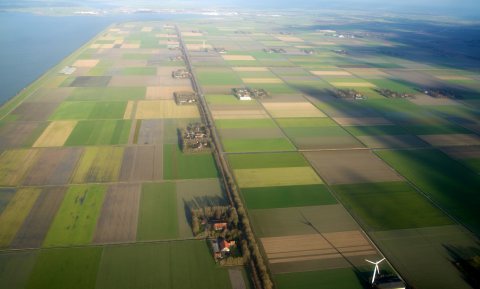
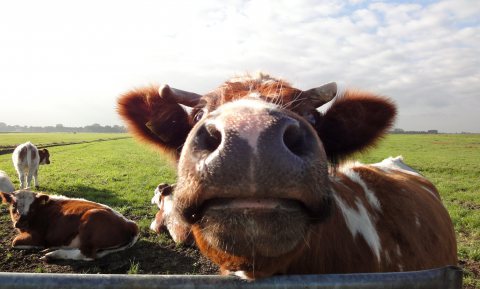
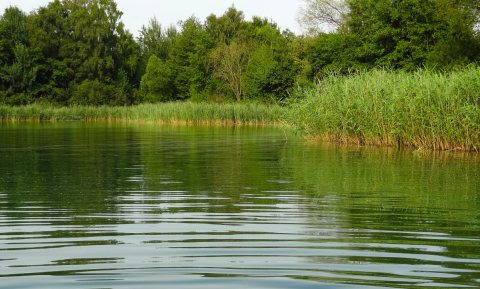

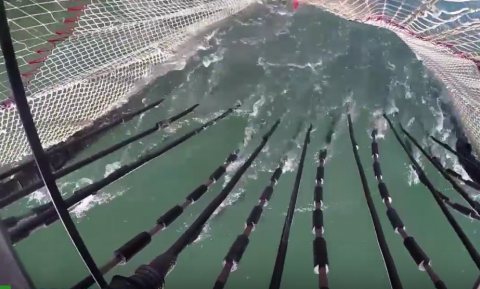
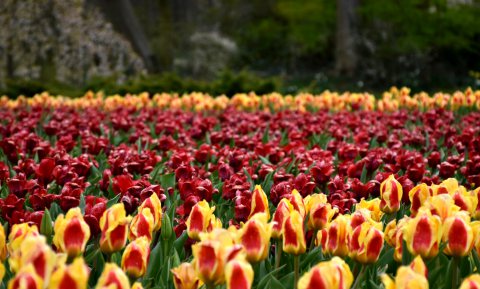
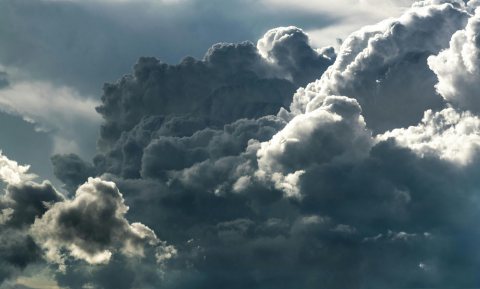



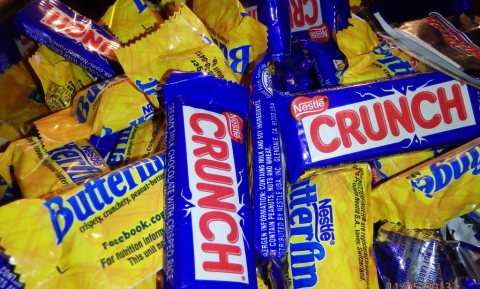
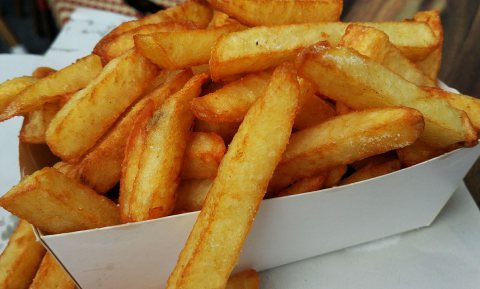
Vitamine D voor in de winter, de vitamines B6, B12 en foliumzuur voor een effectieve behandeling van hyperhomocysteïnemie. We zijn al een eind op weg naar een multivitamine!
Jacobus
Beslist. Het is de enige verklaring die hout snijdt, vooral nu meer en meer duidelijk wordt dat cholecalciferol en allerlei afgeleiden krachtige immunoregulatoren zijn (zorgen ervoor dat het immuunsysteem niet te sloom, maar ook niet overijverig is). De echt gemene influenza's (zoals de Spaanse) killen ons omdat ze het lichaam voor de gek houden en een volstrekt overtrokken immuunreactie uitlokken, die de longen in no time naar de kloten helpt.
Google even op R. Edward Hope Simpson.
Melchior.
Je bedoelt: het is de zon?
Deze elegante theorie (zie hieronder) wordt ook al sinds de jaren '60 geridiculiseerd (het is beslist geen 'new theory'), maar er lijkt schot in te komen:
By Michael Stroh
Sun Reporter
Originally published November 26, 2006
As the annual flu season looms, some scientists have this question on their minds: Why now?
For more than a century, physicians have recognized that influenza sweeps the Northern Hemisphere during the winter months, typically peaking here between late December and March.
Over the years they've floated numerous theories to explain the seasonal flu spike - blaming everything from the flood of frigid air to the wintertime tendency of people to huddle indoors.
Yet these explanations "remain astonishingly superficial and full of inconsistencies," says Dr. Scott Dowell, director of the Global Disease Protection Program at the Centers for Disease Control and Prevention in Atlanta.
Now Dowell and other researchers are focusing on a provocative new hypothesis that blames annual flu epidemics on something most people don't get enough of this time of year: sunshine.
In a paper scheduled for publication next month in the journal Epidemiology and Infection, a Harvard University-led team proposes that a vitamin D deficiency caused by inadequate winter sun exposure may predispose people to infection.
If this theory proves correct, it would not only solve a long-standing mystery, but could also have major public health consequences.
Influenza kills an average 36,000 people in the U.S. each winter, mostly the very old and very young. If scientists could pinpoint the secret behind its seasonal recurrence and somehow alter it, "the potential impact would be far greater than the current influenza vaccine," says Dowell.
Hippocrates, the Greek physician widely regarded as the father of medicine, was the first to recognize that certain diseases ebb and flow with the calendar. "Whoever wishes to investigate medicine properly," he wrote around 400 B.C., "should ... consider the seasons of the year."
Epidemiologists, however, have found that this is easier said than done.
"You look at the environment around you and say, 'What's the difference between winter and summer?'" says Dr. David Fisman of the Ontario Provincial Public Health Laboratory in Canada. "There are so many things that are seasonal, it's really hard to tease them apart."
One obvious answer is that it's colder in winter. And for as long as parents have bundled up their babies, there's been an unshakable belief that catching a chill makes a person more susceptible to cold or flu.
Natuurlijk is beweging fantastisch voor het aansterken van botmassa. Vitamine D is echter niet alleen betrokken bij de calciumsynthese, maar de vitamine werkt ook anticarcinogeen. Vooral de kans op huidkanker kan verlaagd worden met een hogere vitamine D-inname, maar ook de kans op andere soorten kanker kan verlaagd worden. Suppletie is dus wenselijk.
Dick, ik ontdekte op V&GidM nog een artikeltje over zon en vitamine D-suppletie "Liever een supplement dan zon", toch leuk zo'n archief achter de hand!
Hieronder enige bronnen voor de aanname dat een suppletering van 25 microgram vitamine D niet onwaarschijnlijk hoeft te zijn.
Vitamine D-behoefte ouderen groter dan gedacht
Vitamine D-suppletie vermindert kankerrisico
Vitamine D-tekort oorzaak vallen ouderen
Vitamine D halveert risico colorectale kanker
Voorts is het wellicht interessant te melden dat vitamine D3 onder invloed van UV-straling uit cholesterol wordt gesynthetiseerd, waarbij ik gerust hardop durf te denken dat het bizarre statinegebruik in de Westerse wereld weleens een niet te onderschatten negatief effect zou kunnen hebben op het vitamine D-gehalte in het gemiddelde mensenbloed.
Jacobus